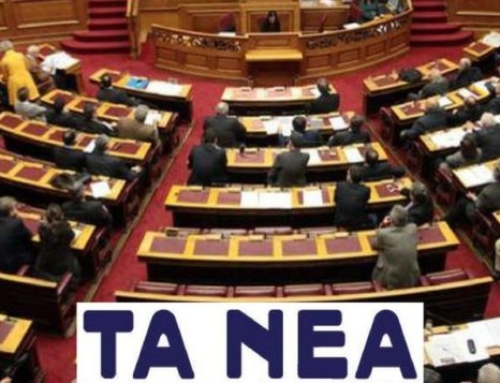by George Siakas *
The official article was published in the greek newspaper TA NEA on June, 26, in greek.
Almost a week before the election, the “big picture” is firm: the New Democracy has a significant lead over SYRIZA. In fact, the same trend, which was observed for the first time since January 2016 and has since been repeated with some fluctuations, has been confirmed in the European elections.
Approaching Sunday, July 7, the major question is that of the first party’s self-reliance. To understand this, it is worth considering three parameters.
First one is how electoral law converts party percentages into seats. Self-reliance depends on two factors: the percentage of the first party and the total percentage of all parties not exceeding 3%. The higher the percentage of the first party, the greater the chances of self-reliance. The lower the proportion of parties that remain out of parliament – that is, the more parties that succeed in entering parliament – the greater the proportion of the first party needed for self-sufficiency. For example, if the ND gets 36% and the total percentage of out-of-state parties is 10%, then it gets 150 seats. However, if it receives 36%, but one additional party enters the parliament, it gains 147 seats.
Second, the strategy against the smaller parties. The two big parties will try to stop their outflows to the smaller ones, while the smaller ones will ask the question of cooperation in the event of non-self-sufficiency of the former. The New Democracy, in particular, is expected to try to halt outflows to its right, while attempting inputs from center forces. Kyriakos Mitsotakis’ argument about power and dual elections obviously fits into this strategy.
Third, the bet on voter turnout and assembly. Participation and rallying are highlighted by parameters that shape the outcome, especially when the next election is held at a time when many of our fellow citizens may have already arranged their summer vacations or may opt for a short break. For example, New Democracy lost about 11% of its power in September 2015 compared to January, when SYRIZA lost 14%.
Certainly, the outcome of the election is of great interest. It can confirm today’s weak bipartisanship, it can reintroduce the strong bipartisan model of the past, or introduce us to a different model of party competition, that of a dominant party and many smaller forces.
*George Siakas is the Research Director of Public Opinion Research Unit.






